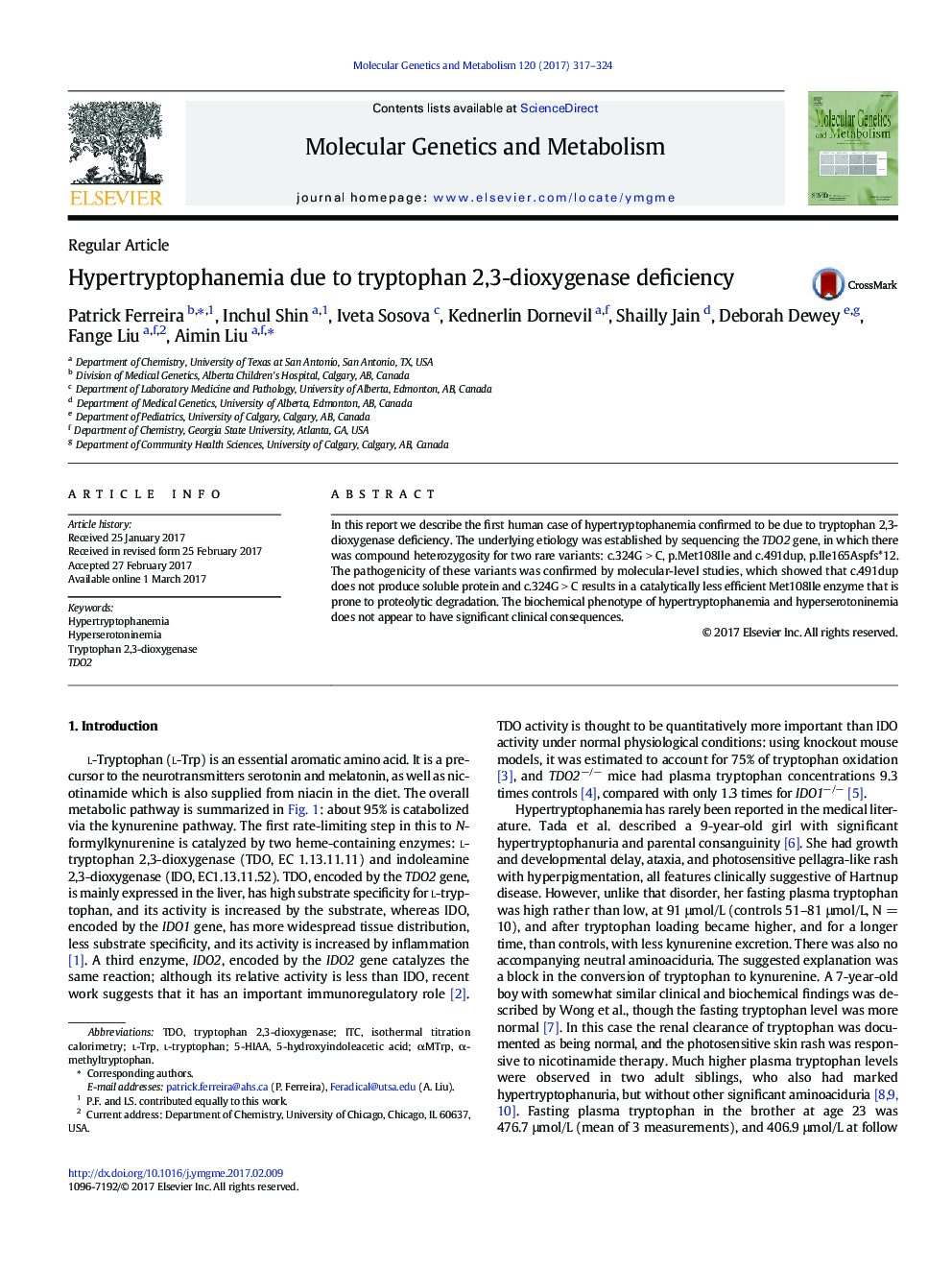| Article ID | Journal | Published Year | Pages | File Type |
|---|---|---|---|---|
| 5513943 | Molecular Genetics and Metabolism | 2017 | 8 Pages |
â¢The first clinical case report of human tryptophan 2,3-dioxygenase deficiencyâ¢Biochemical phenotype is hypertryptophanemia and hyperserotoninemia, but no clearly discernable clinical phenotypeâ¢Compound heterozygosity for two rare TDO2 variants: c.324G > C, p.Met108Ile and c.491dup, p.Ile165Aspfs*12â¢p.Met108Ile has an increased Km and is prone to proteolytic degradation via decreased KD at an exo regulatory siteâ¢c.491dup does not produce soluble protein
In this report we describe the first human case of hypertryptophanemia confirmed to be due to tryptophan 2,3-dioxygenase deficiency. The underlying etiology was established by sequencing the TDO2 gene, in which there was compound heterozygosity for two rare variants: c.324GÂ >Â C, p.Met108Ile and c.491dup, p.Ile165Aspfs*12. The pathogenicity of these variants was confirmed by molecular-level studies, which showed that c.491dup does not produce soluble protein and c.324GÂ >Â C results in a catalytically less efficient Met108Ile enzyme that is prone to proteolytic degradation. The biochemical phenotype of hypertryptophanemia and hyperserotoninemia does not appear to have significant clinical consequences.
